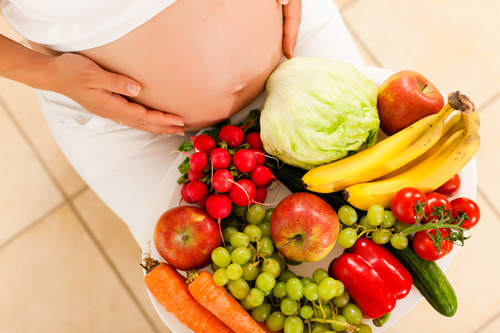The goal shared by all intended parents and surrogate mothers is to produce a healthy baby. To ensure that the baby develops properly, it’s very important for the surrogate to eat healthily while she is pregnant. More and more, intended parents are going a step further by asking their surrogates to eat only organic foods. While some surrogates are reluctant to do this, others are entirely willing – after all, it may improve their own health.
As with any significant decision, though, there are pros and cons to be considered.
The downsides include that organic foods can be much more expensive than the same type of non-organically-produced foods. This is due to their higher cost of production. A surrogate may be more willing to eat organic foods if the intended parents offered to pay for the organic foods she eats.
A related issue to that is the fact that organic foods can also be harder to obtain; not every grocery store or supermarket has such a wide selection of organics. They’re a specialty item, after all, and surrogates with fewer options for food-shopping (in rural areas or small towns, for instance) may have trouble shopping for organic foods.
And of course, not every food is available organically. There’s a real possibility that a surrogate eating only organically may have to miss out on some of her favorite foods for the duration of her pregnancy.
There are convenience issues, too. Organics, due to their lack of preservatives, can spoil more easily – shorter shelf-lives, which require more regular shopping.
But there are a lot of good reasons that intended parents ask their surrogates to eat organic foods. Insecticides and additives are potentially harmful if they are passed though to the baby during pregnancy. Organic foods lack insecticides and additives – those things won’t be carried through into the baby.
Health concerns have, from time to time, been raised over genetically modified crops, or meat from animals that have been fed those crops. Organic food, by definition, is not genetically modified, which removes those concerns.
Research has shown, additionally, that organic foods contain more healthy vitamins and minerals, possibly due to the lack of preservatives involved.
And as a side-benefit, if you’re concerned about how animals are treated, organic food is a much better idea. Organic farming requires that animals be fed a natural diet, and are kept (unlike mass-produced ‘factory farm’ meat) in much more humane free-range conditions.
So while organic food can be inconvenient at times and more expensive, it also does provide a much healthier choice for the surrogate and the baby. It’s a big decision that should be weighed seriously from both sides, but there are solid reasons behind why a lot of intended parents do want their surrogate mothers to eat organically during their pregnancy.
[message/]













